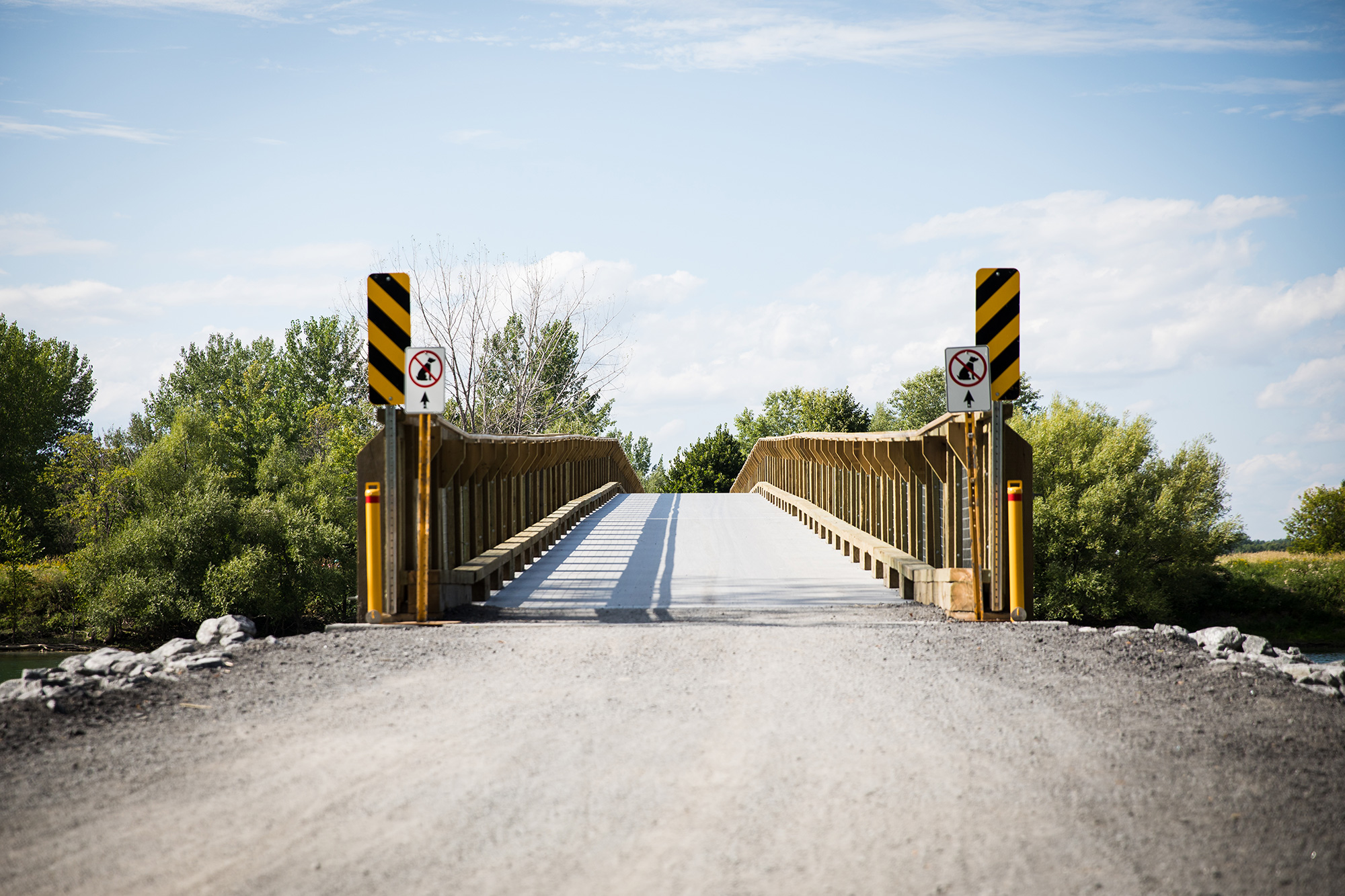MAADI Group has been awarded a contract to finalize the fabrication of a new fusion-welded aluminum bridge deck system for Quebec’s transport ministry. With this contract, the Quebec-based firm will become the first Canadian manufacturer of aluminum bridge decking for 63-ton vehicles, commonly known as CL-625.
The contract, awarded to MAADI Group through Construction Bressau Inc., is part of a $5 million research project led by the Ministère des Transports to demonstrate the viability of extruded aluminum as a strong and durable solution for bridge decks in major infrastructure. The deck design was initially developed jointly by the major North American engineering firm WSP, the AluQuébec aluminum cluster and Université Laval. MAADI Group will extrude and weld the aluminum decking at its manufacturing facility in Varennes, Quebec, using nearly two decades of aluminum engineering and manufacturing expertise to fine-tune the design as needed. The deck will then be installed by Construction Bressau Inc. on a new heavy-load bridge in the Montmorency Forest area for the pilot project.
“We’re very pleased that we were chosen for this project,” said MAADI Group CEO Alexandre de la Chevrotière. “MAADI Group recognizes that it’s a big challenge, but we’re ready to put in the work to make this infrastructure innovation possible.”
This project is part of an effort by the province to encourage the local transformation of the resource by Quebec-based firms and produce exportable aluminum products. Canada is the 4th largest producer of primary aluminum in the world, but most of it is currently exported to be transformed elsewhere. Once the pilot project is successful, MAADI Group will be able to manufacture aluminum bridge decks on behalf of Quebec’s transportation ministry. The ministry will then sell its proprietary extrusions for use in new and existing bridge projects across Quebec, to any manufacturers that request them.
MAADI Group is already a well-established name in North America’s small but growing aluminum extrusion industry, including as the first Canadian manufacturer of aluminum bridge decks for 15-ton vehicles. The firm’s patented weld-free aluminum decking, known as GuarDECKTM,, uses a tongue-and-groove system for rapid assembly and installation. In 2020, the product won 1st place in the Architectural/Structural category at the Aluminum Extrusion Design Competition, organized by the ET Foundation.
Unlike GuarDECK, the aluminum planks in the new bridge decking will be fusion welded, creating an orthotropic deck that distributes the load bidirectionally to support heavier loads, like fully loaded semi-trailer trucks. Fusion welding involves melting the metal and allowing it to return to a solid state to form a strong joint. The challenge with aluminum is that the metal contracts when cold and expands when hot, which can result in issues of distortion when it returns to solid state.
Though still relatively uncommon, aluminum has been used in vehicular bridges in for almost a century, with the first aluminum deck used in Pittsburgh in 1933. According to a report on opportunities for the use of aluminum in vehicular bridge construction prepared jointly by Alex de la Chevrotière and Scott Walbridge of the University of Waterloo, replacing more traditional concrete, steel, or wood decks with lighter aluminum decks has been shown to reduce bridge self-weight and significantly increase bridge live load capacity—a cost-effective way to extend the life and use of deteriorating bridges while also making them safer.
Aluminum’s light weight also makes its use in bridge decks ideal for rapid bridge replacement projects, substantially reducing disruption to traffic. In addition, aluminum is corrosion resistant, providing additional savings over the life of the structure compared to materials like steel or concrete that are more heavily impacted by road salt exposure—a substantial advantage in harsh Canadian winters.

